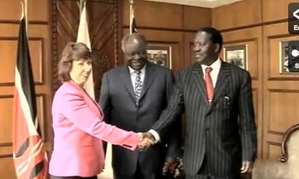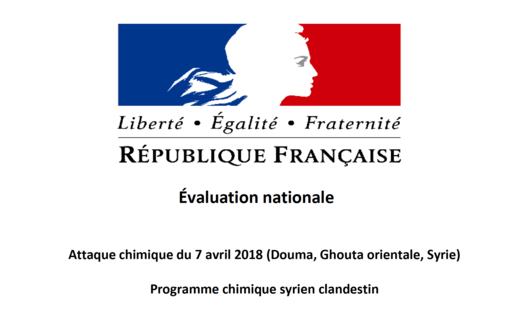Kenya cracks open door to EU on trial of pirates

(BRUSSELS2) The Catherine Ashton's visit, the High Representative of the EU, in Kenya did not allow the file to be unblocked. But we can note some progress in the real standoff that Kenya has engaged with the international community, and in particular the European Union.
Four months to negotiate a new agreement
Kenya had denounced the agreement which bound it to the European Union at the end of March. This one having a notice period of 6 months, there are still 4 months to negotiate a new agreement.
The Kenyan Foreign Minister, Moses Wetangula, did not return to this denunciation. But he called the visit "fruitful". Because the EU has recognized the need for a " burden sharing », of a « more concerted international effort " and " that one country could not solve this problem alone". Cathy Ashton confirmed this to her interlocutors. The Kenyan thus made a gesture of conciliation. The country could accept case by case to take charge of suspects apprehended by the ships of the European force.
On the merits, however, he gave up nothing. Kenya intends to see its concerns - whether political, legal or financial - taken into account. If, in four months, the country has not received guarantees on security and costs, it will thus stop pursuing pirates. The Minister also confirmed this. We want " shared responsibility, shared costs, shared risks Wetangula points out.
The reasons for the showdown
First, Kenya doesn't want to be the only country in the region translating hackers - making it a bigger target for hackers. It is therefore a message addressed to the other African countries in the region, in particular Tanzania (where the High Representative is also going) but also Mauritius, South Africa... so that they also agree to sign an identical agreement and to take care of the pirates (short term) and to put in place a regional solution (long term).
Secondly, it is a question of resolving the Somali crisis, from which Kenya suffers in the first place. Because of its common borders, and the possible unrest and unrest, which threatens the north of the country. Kenyans can see that the international community has more concern over the region since the pirates took action. He therefore considers that a stronger commitment by the Member States of the European Union to Somalia is necessary. But also to provide Kenya with the means for its security (possibly with the delivery and
support for safety equipment, etc.).
Thirdly, it is a question of obtaining from the European Union a renegotiation of the pirates' surrender agreement on more favorable terms. In particular by making the criteria for accepting suspects more stringent (“case-by-case” would become the rule); by also obliging the countries that hand over pirates to it (1) to provide "after-sales service": recovery and rerouting of suspects if the courts release them, or even imprisonment in other countries once the sentence has been pronounced (2).
Fourth, Kenya wants more financial support. The country believes that the sums paid by the Europeans and the international community are limited to a single fact: the pursuit of pirates - and cannot be used for other needs (3). He would like to see not only an increase in these funds but that they have a more global purpose. The Kenyan economy is suffering. According to Wetangula, piracy costs the country $25 million a month. $1 million a day! That's far more than the ransoms paid to pirates or the aid
European Union for the translation of pirates (€1,7 million). The EU will therefore have to go to the checkout.
(Nicolas Gros-Verheyde)
(1) It should be noted that according to the law of the sea, it is the State of the flag (attacked) which has primary jurisdiction. Universal jurisdiction being, in a way, suppletive and concomitant with this right.
(2) Conditions obtained by the Seychelles in the agreement signed with the EU. Read : L'OK transfer of suspects with the Seychelles
(3) Not all monies have been spent in this way. Read :Lady Ashton on tour in East Africa but not in
Uganda.

